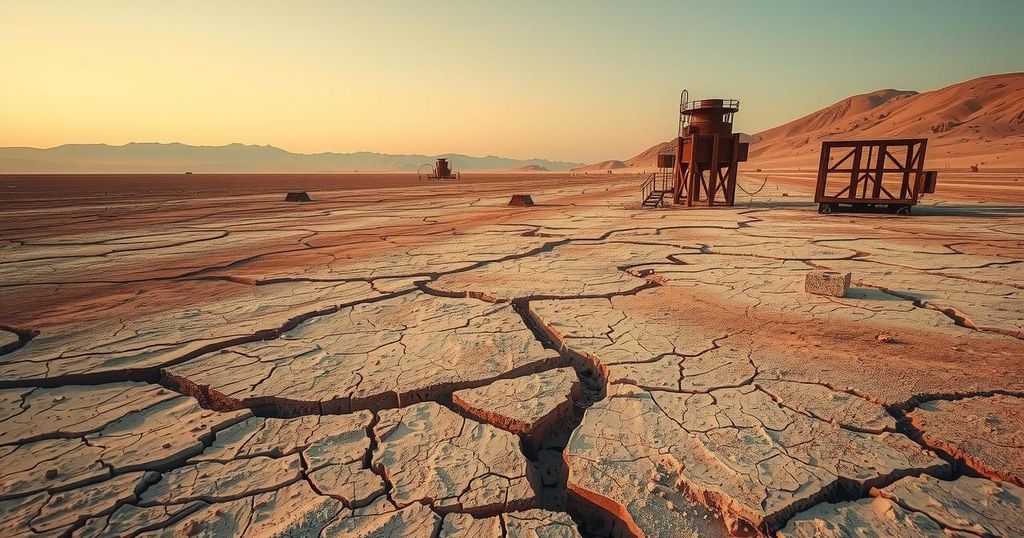*We Live Here*, directed by Zhanana Kurmasheva, is a documentary premiering at CPH:DOX that explores the enduring impact of a former Soviet nuclear test site in Kazakhstan. The film highlights the challenges faced by the local community, emphasizing themes of legacy, survival, and global responsibility. With a focus on personal stories and cultural significance, it aims to elevate the representation of Central Asian documentaries on the global stage.
The documentary film, We Live Here by Zhanana Kurmasheva, explores the enduring legacy of a former Soviet nuclear test site in Kazakhstan. Premiering at the CPH:DOX festival, the film highlights the struggles of three generations impacted by past nuclear testing, illustrating a haunting narrative that continues to affect the local community. With 456 nuclear tests conducted between 1949 and 1991, the ramifications of radioactive contamination remain palpable, as demonstrated through the personal narrative of a couple seeking answers about their daughter’s illness.
As noted by Kurmasheva, the film provides a poignant examination of the intersection between local and global issues. She emphasizes that while the specific sufferings of the Kazakh people are profound, they reflect broader existential concerns about humanity’s impact on the planet. The film serves as a metaphor for global challenges, exploring themes of survival and hope against a backdrop of historical trauma.
Producer Banu Ramazanova remarked on the significance of We Live Here as it marks a milestone for Kazakh documentaries on the international stage. The inclusion of the film at CPH:DOX helps to elevate the medium within Central Asia, where documentaries are often marginalized. This exposure is vital in fostering a creative documentary community and in reshaping perceptions of the genre.
The film’s sales agent, Syndicado, aims to promote We Live Here internationally, recognizing the necessity of external validation for Central Asian films. Ramazanova articulated that global recognition is crucial for asserting the importance of their cinema to their home audiences. The director and producer are already planning a subsequent documentary focusing on environmental issues, showcasing the interconnectedness of global capitalism and its ecological consequences.
The film contributes to contemporary discourses regarding nuclear disarmament, especially in the context of former Soviet states reassessing their nuclear policy. Kurmasheva eloquently articulated the cyclical nature of humanity’s history, underlining the challenge of overcoming violent legacies. The original title, Atameken, which translates to “My Sacred Land,” encapsulates the deep emotional and cultural ties that locals maintain to their homeland despite its troubled history, reinforcing the notion of belonging and resilience amidst adversity.
Ultimately, Kurmasheva’s concluding thoughts reflect a profound acknowledgment of Earth’s singularity, urging collective responsibility for its stewardship and recognizing that the struggles faced in this specific locale resonate universally.
In conclusion, *We Live Here* serves as a profound exploration of the lasting consequences of nuclear testing in Kazakhstan, intertwining personal narratives with broader existential themes. The film not only represents a significant cultural milestone for Kazakh cinema but also engages with critical global discussions regarding environmental issues and nuclear disarmament. Through personal testimonies and reflective insights, the documentary stresses the importance of empathy and understanding in addressing historical wounds and collective futures.
Original Source: www.hollywoodreporter.com






